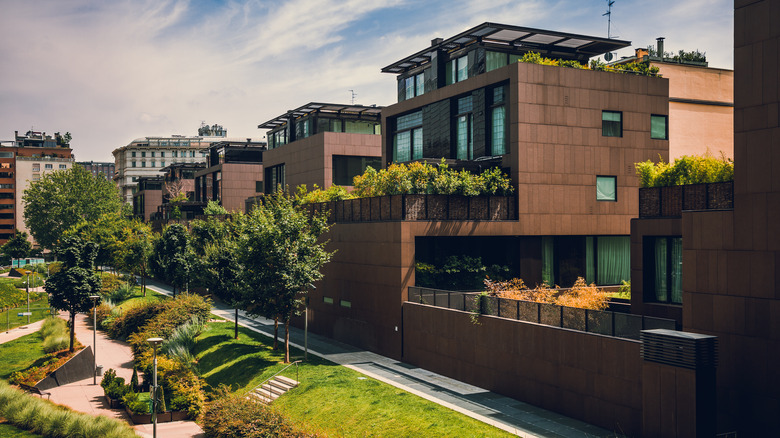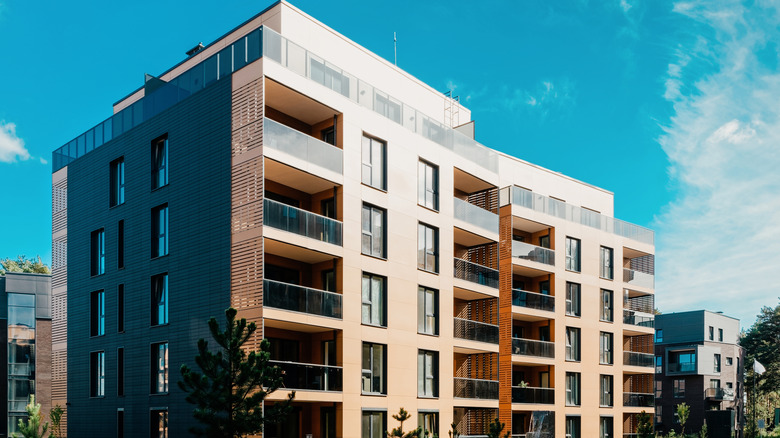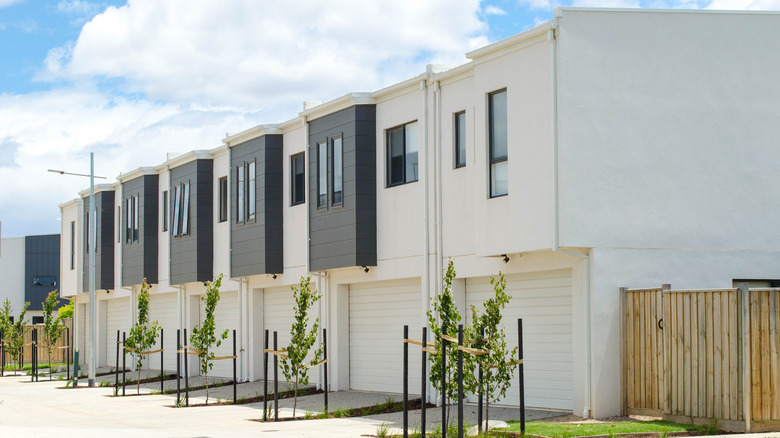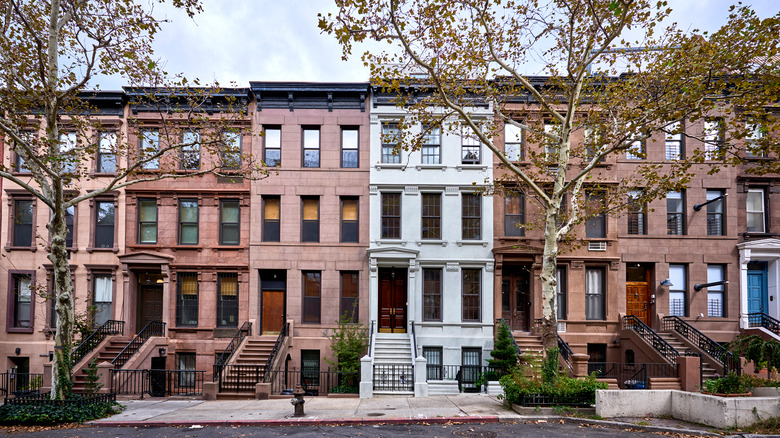Condo Vs. Townhouse: What's The Difference?
When house hunting, it's easy to get overwhelmed with all the choices and options on the market. You often have to compare different housing types, and it can be hard to know which one is right for you. Purchasing a home is one of the biggest decisions you can make. It affects both your lifestyle and financial situation, so you want to ensure that the decision is well-informed.
In your search, you've probably come across both condos and townhouses. Both are common options in many cities in the United States, Bankrate notes. However, they have distinct features that set them apart from each other, and two of their biggest differences are often appearance and cost.
Both condos and townhouses are great housing options to purchase. But it is important to know and understand what you'll be getting before continuing the house hunt or signing any paperwork. Ultimately, which one is best for you depends on what you're looking for in your home.
How are condos and townhouses similar?
Whether you live in a condo or a townhouse, plan to share a wall or more with neighbors, says real estate agency Springs Homes. Both these residences are a type of attached home, which differs from detached houses where a homeowner wouldn't share any walls with neighbors. The attached walls are made this way because townhouses and condos are popular housing options in cities where populations are denser. As a result, these kinds of structures allow more people to live in smaller areas.
Both townhouses and condos have various styles, and they can be both individually owned or rented. Also, these two home types can allow residents access to fitness centers, clubhouses, and parks, which the owners fund. Another similarity between the two is that you have a form of ownership; however, instead of paying rent through a lease as you would with an apartment, you'll be paying a mortgage.
How do condos and townhouses differ?
Condos and townhouses have more differences than similarities, and one of the big distinctions is in the type of ownership: You do own a condo, but not the same way you would own a townhouse. With a condo, you own your unit inside the building and have joint ownership in the building with the other tenants, says Moving. Joint ownership often includes common areas like a pool or gym. However, with a condo, you do not own the land that it sits on.
And this is where townhouses are more similar to single-family homes than condos. When you purchase a townhouse, you're not only buying the home itself but also the land it's built on. Because buying a townhouse is like buying a detached home, you're not guaranteed amenities like a pool or a gym unless the community you move into supplies them. In addition, in a townhouse, you'll be required to do your own home maintenance like yard work or plumbing, whereas many condo buildings have an on-call maintenance service that condo fees help pay for.
How do condos and townhouses differ in appearance?
When it comes to exterior appearance, condos are more similar to apartments. According to Colorado Real Estate, most condos are in single buildings or a community of buildings. These structures can have a range of exterior styles, from more ornate and traditional to sleek and modern. The building exterior may have balconies or patios for each unit and may have a rooftop for residents to enjoy amenities. These exteriors are usually pretty uniform.
You'll usually find townhouses in a row all attached to each other. Unlike condos, you can easily make a distinction between the units. These, too, can differ in appearance depending on when and where they're built. Some are modern, while others have a more traditional style. While each townhouse may have a similar style because they're individually owned, there can be some pretty large differences in appearances. Some may be painted a different color, have a front porch, or an additional floor that the townhouses next to them do not have.
What's the cost difference?
There are a couple of ways to break down the costs of a townhouse and condo. First, if you're looking at the price to purchase one, a townhouse will be more expensive. There tends to be more space within this home type, and the extra square footage comes at a higher price, says Rocket Homes. But location is a factor for both. For instance, neighborhoods close to restaurants and shops, and good school districts will raise the asking price for both residences.
In most cases, condos tend to be cheaper because of their size and because you're buying a unit rather than land and a structure. But be careful because mortgage interest rates can be higher with a condo. You're also much more likely to have to pay an HOA fee. These go towards amenities and maintenance but can also be restive in rules.
Not all townhouses will come with a building fee; it depends on the type of community that you move into. But if your townhouse community does have an HOA, then the price tends to be cheaper than a condo's because townhouse owners are responsible for maintenance and repairs.




